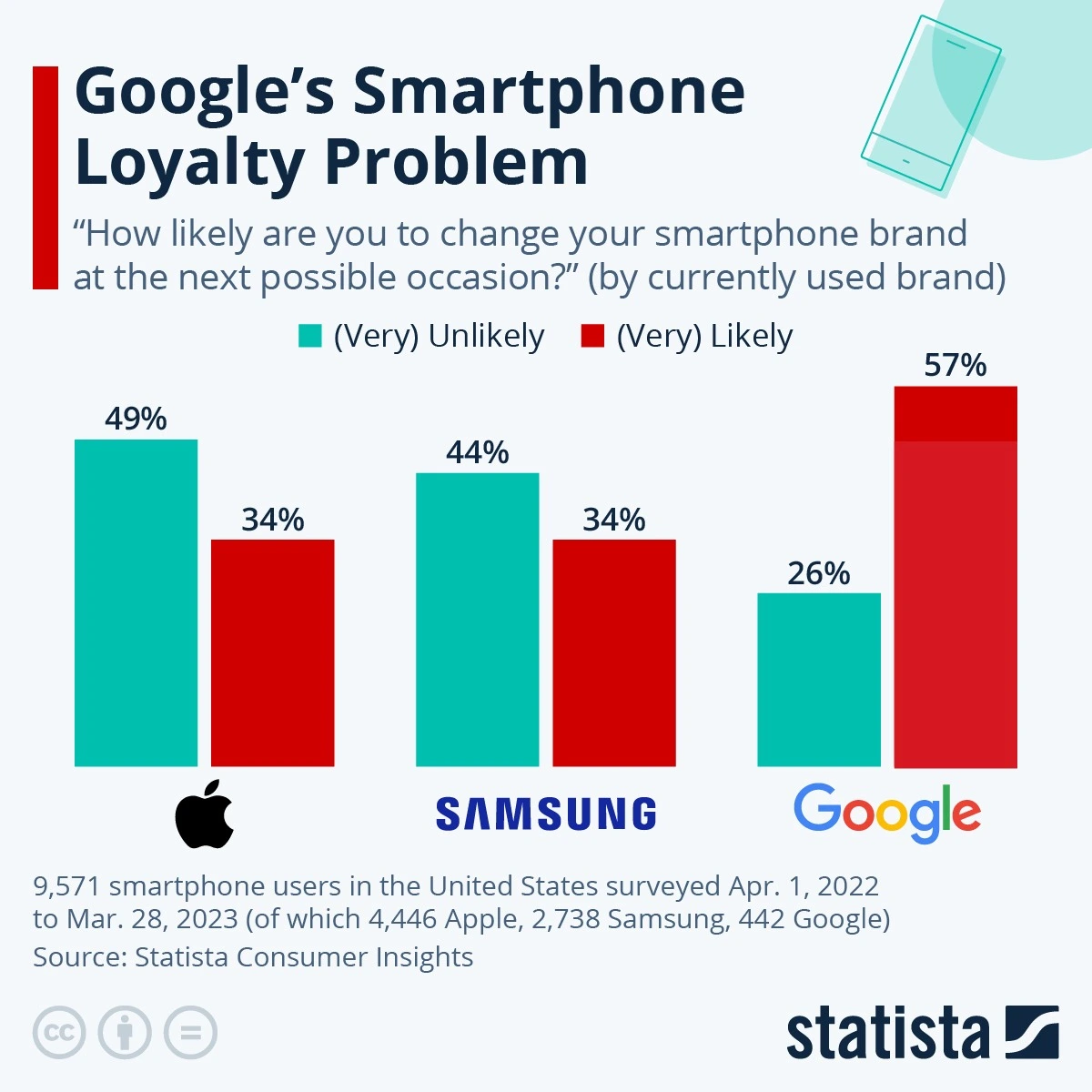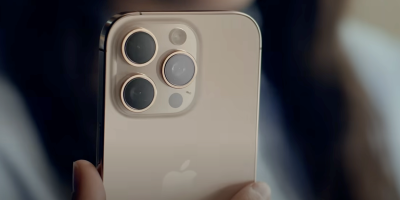Whenever someone buys into the Apple ecosystem and gets a device like an iPhone, there’s a good chance that they will continue to use an iPhone for years to come. They might have complaints, but ultimately they will still choose to use an iPhone at the end of the day. Unfortunately, the same cannot be said for Google’s Pixel phones.

According to a Statista report as part of its Global Consumer Survey, they found that a staggering 57% of Google Pixel owners say that they are very likely to switch to a different brand at the “next possible occasion”, meaning that these customers aren’t particularly loyal or attached to the Pixel series of phones.
While it is expected that all brands have their fair share of “ship jumpers”, Google’s is the highest. Other brands included in the survey are Apple, which has a “(very) likely” percentage of 34%, which is on par with Samsung, putting them far below Google’s level.
Keep in mind though, this report only surveyed 442 Pixel owners compared to the 3,000 Galaxy users and 4,400 iPhone owners, which is a tiny sample in comparison which makes it harder to account for any statistical errors, so it’s something to keep in mind.
That being said, we’re not sure if this is something that Google needs to be worried about.
This is because we have seen time and time again where companies actually don’t make much money on the hardware that they are selling. A good example would be Microsoft, where the company doesn’t turn a profit for the Xbox consoles that they sell. Instead, they make their money from the software (games) that they sell.
In Google’s case, it would be similar, where the use of Google’s products and services like Search, YouTube, Gmail, and more along with ads are what drives the company’s revenue. Obviously this doesn’t mean that Google is willing to lose money over its Pixel phones and it would also be nice if their phones could command a loyal following, but at the same time we can understand if the company isn’t too perturbed by it.
![]()
So why aren’t Pixel phones commanding as much loyalty as other brands? To a certain extent, we could say it is because Google is “lazy”. Given that pretty much all Android phones use the company’s products and services, Google knows that even if they didn’t make Pixel phones, they still more or less control the Android scene, and in a way have a lot of say on how Android phones are meant to be used or perform (Google has a set of rules that OEMs need to adhere to if they want to use its Android platform).
This is versus other handset makers who have to rely on Google’s software, which means that for the most part, the overall experience between brands are the same and to compete with each other, they’re forced to innovate in terms of hardware and also software, creating custom UIs and exclusive features that other brands don’t have.
![]()
Take Google’s Pixel 7, for example, which is their latest and most powerful phone to date. Apart from the fact that it offers an optimized Google experience and the company’s custom Tensor G2 chipset, there’s really nothing that it offers that other phones can do just as well, if not better.
Back in the day, one of the main reasons to get a Google Nexus handset was because it offered a stock Android experience. This way back then where handset manufacturers were going overboard with their custom UIs and bloatware which saw the rise in popularity of pared down ROMs like CyanogenMod.
These days, companies have pulled back considerably on their customizations, which is now one less reason to consider a Google-made phone.
This could be a reason why some Pixel owners are easily swayed by other brands who might come up with better designs and exciting features that would entice these customers away from the Pixel phones.
At the end of the day, while the disparity in loyalty amongst Google’s Pixel phones compared to other phones is shocking, we doubt that Google will be too concerned. Plus, it is also one of the major appeals of the Android platform, where you get to have different experiences to find one that suits you best, versus Apple’s iPhones where you’re pretty much told how to use your phone.








Comments